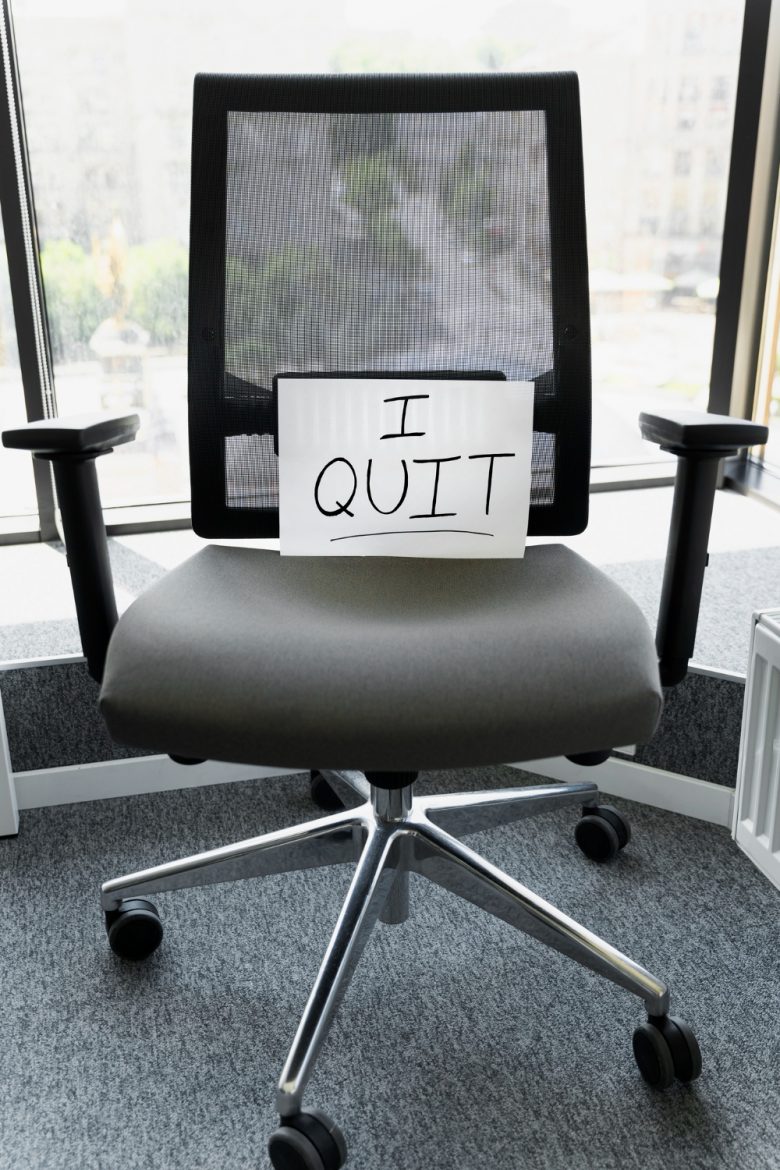Even if you’ve never heard the term “The Great Resignation” before, you’ve likely noticed it happening all around you. American workers are rapidly quitting their jobs in response to various changes in the country’s workforce, and it’s changing the way the American economy is shaped.
What is The Great Resignation?
The Great Resignation is a term used to describe the recent economic movement characterized by mass employee attrition. This pattern isn’t just hypothetical – it’s backed up by statistics from the U.S. Bureau of Labor and it’s very real. Although many people attribute these recent changes to the aftermath of the COVID-19 pandemic, there’s much more to the story.
Why Are People Leaving Their Jobs?
Job Insecurity
Recent studies show that only 20% of American workers express a feeling of job security within their current occupation. Not only is this statistic alarming, but it also indicates that there is a deeper problem with the current job market than just a lack of employees. People are struggling to find growth opportunities within their industry, and mass layoffs executed by corporations haven’t helped.
Burnout
During the pandemic, American workers reached an entirely new level of exhaustion. Often, during recessions, affordable luxury items and certain recreational activities see an increase in sales due to consumers coping with stress with small, occasional rewards.
However, during the pandemic, shops and restaurants were closed, and people were prevented from being able to go out and relieve stress. Between being cooped up at home and unable to enjoy anything beyond that, it’s no surprise that workers never really received a true break.
Corporations are looking to hire as few people as possible to complete the jobs they need done, and they’re looking to pay as little as is required of them. This creates a strong distrust between laborers and employers.
Not only that, but many hourly workers have experienced being bombarded with their coworkers’ responsibilities without being compensated by a pay increase, which builds resentment and perpetuates the ongoing burnout.
Mass Layoffs
Not only does company treatment of employees factor into job insecurity, but it doesn’t help when corporations are executing mass layoffs due to mismanagement. Some major companies which have done this include (but are not limited to): Facebook/Meta, Amazon, Microsoft, Google, Yahoo, and Zoom.
Mass layoffs affect long-term employees the most; individuals who have dedicated decades of their life to a single position or company now find themselves thrust back into the workforce with little direction and support.
Individuals are also less likely to apply to jobs when a company has recently cut so much of its labor force, dividing employers and workers even further.
A Never-Ending Race
American workers have repeatedly expressed frustration with the seemingly impossible-to-reach American dream. 7.7 million U.S. laborers have two or more jobs, shattering the previously held notion that one person with a full-time job should be able to afford to support themselves – a belief upon which the “American Dream” was initially founded.
Additionally, households which could previously sustain themselves off of one person’s full-time labor and the domestic labor of a spouse or partner, can no longer keep up with the increasing prices of industries such as housing, gas, insurance, and even day-to-day expenses such as groceries. This is culminating into an overall feeling of hopelessness, especially in the younger generations.
Tensions between the upper and lower class in America continue to come to a boil in recent years. Today, the richest 1% of Americans make 84 times as much as the bottom 20% of Americans, creating a massive gap in earnings. The middle class is dying out altogether as more and more people fall into poverty – now, the middle class is no longer the majority as it was in years prior, but is instead fading fast.
One major issue contributing to this dilemma is tax cut-offs which primarily benefit the 0.01% of upper class Americans. This marginal class of individuals has seen a significantly higher increase in income compared to their stagnating lower class counterparts.
In the 1970s, the U.S. marginal tax cut off was 70%, as compared to today, where it has stagnated at 37%, thus allowing these wealthy few to continue growing while the other classes struggle to survive.
Needless to say, lower class and impoverished Americans are frustrated and exhausted, feeling as though there is no way to “win” in today’s economic climate. These factors combined create the perfect storm, which has unsurprisingly resulted in what we now know as The Great Resignation.
Who Is At Risk?
The Great Resignation affects all laborers and employers, whether they’re working in a corporate setting or providing blue-collar labor. Individuals who work for a lower hourly wage will find themselves struggling to keep up with the continued increase in inflation, particularly in industries such as real estate.
It’s no secret that times are tough all around in the U.S., particularly for those on a limited income. The younger generations, Millennials and Gen Z, will likely suffer the most due to exhausted resources and corporations failing to adapt their wages to the modern cost of living.
For example, millennials represent a remarkably lower percentage of home-owners in the U.S. compared to their older counterparts, and 34% of Gen Z fully expects never to be able to buy a home. Additionally, U.S. Social Security retirement funds are expected to be exhausted by or before the year 2037 – when Gen Z will be approximately 40 years old, leaving little hope for the newest generation to ever retire.
This feeling of hopelessness among both younger generations has cultivated an overall resentment and frustration with the workplace, creating a massive shift in cultural attitudes toward work altogether. One example of this attitude change is the recent Gen Z philosophy of “quiet quitting” – essentially describing the practice of steadily providing the bare minimum for employers unless a pay raise is on the horizon.
This mindset, although often criticized as being lazy, is not entirely unfounded. The federal minimum wage has stagnated at $7.25/hr since 2009, and even companies that pay competitively fail to make much of a difference. Research shows that workers haven’t been compensated this little in comparison to the cost of living in 66 years.
Taking into consideration these monumental shifts in American views about work in addition to the bleak future of corporate America, it’s certainly no surprise that people are losing interest in working hard for what seems to be very little reward.
How to Handle This as An Employer
As an employer, it will quickly become increasingly difficult to keep up with workers’ demands and to provide them with enough incentive to continue working. However, there’s no reason to lose hope altogether. There are things you can do to make it more likely for your current employees to stay, including:
- Compensate your employees competitively.
- Take the time to get to know your workers on a personal level.
- Provide additional breaks, PTO, and other incentives.
- Make an effort to motivate employees.
- Treat your employees as equals.
- Offer growth opportunities within the industry for hard-working employees.
- Listen to employees’ concerns and suggestions and ask for feedback.
- Offer new ways for employees to enjoy their time on the job (such as a break room, remote work opportunities, and employee events).
- Automate when necessary
- Have a plan to make sure your customers are not effected
Looking Forward
The Great Resignation is a phenomenon that is somewhat unprecedented, and it’s natural to experience some concern. However, the best thing you can do to navigate this situation as an employer is to do as much as you can to support your employees during this turbulent time in American economics. Be aware of the struggles workers are forced to endure at this time, and try to be understanding and patient.












Pingback: Top Under The radar Secrets To Create A Successful Home Based business Enterprise(Product) ·
Pingback: What You Need to Know About the Great Resignation Krownjobs.com - krownjobs